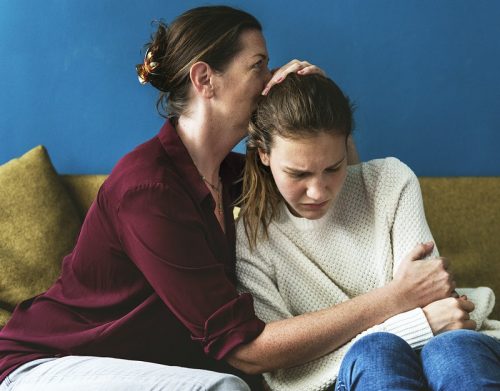
Source: rawpixel.com
It is natural to be worried and threatened to be in the grief support network. This may be one of the reasons why loving people sometimes hurt the ones they care about, particularly to their grieving loved ones, which may include family members and significant others. Optimistically, after reading this, you’ll be comforted in the thought that your fears and anxieties are normal and do not in any way indicate that you have a profound personal problem.
Just a few months ago, some family members and friends grieved for the loss of a loved one. I sent them cards and beautiful flowers to remind them that I would be there when they needed me, but I didn’t feel that way. What I felt were uselessness and unworthiness. I knew these significant others were getting into the dark and lonely path of grief and that there was nothing more I could give them but my silent support, comfort, and encouragement.
Looking at these people that I love going through dark and lonely times, I recognized a few realities that were equally important.
- There is such a thing as an amazingly supportive family and friend network.
- Having a strong support network is not about just one person verbalizing or doing what needs to be done. Instead, it is about having a support system made of loved ones that collaborate to find ways to help in whatever way they can. Usually, it’s the small actions that are most accepted and acknowledged.
In addition, here are some of the most useful and supportive ways to help your grieving family members and friends.
- Be there for them. A lot of people who have experienced loss say that those who have given physical and emotional support were among the most appreciated. When you say you’ll be there, it’s different from just saying, “I’ll be there when you need me.” Truth be told, this is frequently the last thing someone says before he gets lost in the wind when his grieving family or friend asks for his help. He definitely is not there.

Source: rawpixel.com
How can you be there in the real sense of the word? Well, for one, you will show up when your bereaved loved one needs you, or you can check in on them regularly through texts or calls. Even sending them some thoughtful and loving messages will surely let them know you are there for them.
- Encourage them to take a break. I remember one of the grief theories, the Dual Process Model, which states that the griever moves from facing his loss and avoiding it. It also states that taking a break from the whole process is actually healthy, and this does make a lot of sense. We all need some time to feel relax and do things that evoke positive behaviors and emotions. You, on the other hand, can be your enabler in this. Help your loved one feel enlightened and comforted without really forgetting his loss – just the feeling of rest and relaxation from all the hurt and the grief. Laughing with the griever, taking him to his favorite restaurant, sharing wonderful memories together, or just accompanying him at home and watching feel-good movies.
- Send him something. Some think that giving flowers isn’t all that great because after they’ve been used for service, they’d just be thrown in the trash or let them wilt in one corner until they’d smell dreadful. But, I do still send flowers, especially when I think that it’s appropriate. These are times when I know that my loved one loves to receive flowers and will certainly be comforted by them.
However, if you wish to send them other things besides flowers, home-cooked meals would also be a great alternative. Other better suggestions include meaningful cards, old things that once belonged to the person they lost, or self-care items.

Source: rawpixel.com
- Give practical means of support. Anyone who loses someone needs to receive practical support perhaps because their loved one who passed away probably was the one who managed the finances or other household obligations, or simply because losing someone makes it quite difficult to focus on his usual activities. If you want to give them support in practical ways, think about what your family or friend might need assistance with that you can share your skills with. If you’re good in the kitchen, you can offer to cook a few meals for them. You could also give them a hand in cleaning the house or watching over their children when they’re off to work or go somewhere important.
- Commit to ‘go through the dark’ with them. One thing that people often say that they appreciate it is when their family and friends commit to being there for them even through the dark path – when they feel like weeping the whole afternoon, listen to them if they want to talk about their loved one who died, understand them when they are irritable or frustrated, and simply accept their loved one’s grief after months or even years.
